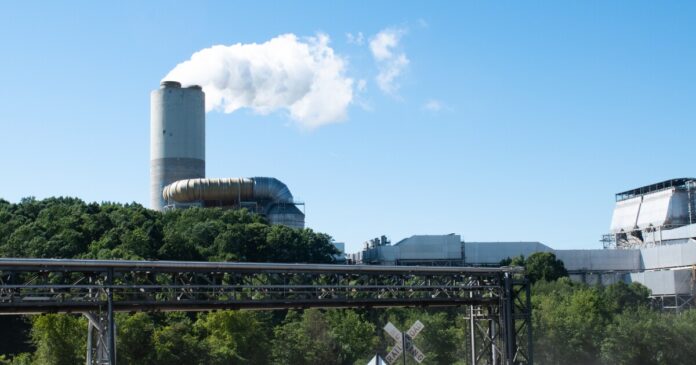
Conservative politicians have generally not viewed climate change as their issue. Many have even outright denied its existence at times, including North Carolina gubernatorial candidate Mark Robinson. But this doesn’t reflect the appetite some conservatives, especially younger ones, have to engage on climate matters. WFAE’s climate reporter Zachary Turner has been speaking with younger conservative voters in North Carolina, and he joins us now.
Nick de la Canal: Zachary, how much is climate change on these younger voters’ minds?
Zachary Turner: I went to a meeting of the Mecklenburg Young Republicans last month. I had an opportunity to talk with a few of their members, and it does seem like climate change is on their mind. For example, I spoke with attorney Winston Hanks. He’s been with the group about 10 years.
Winston Hanks: “We’re coming to a better understanding of the realities of climate change and having the willingness to actually come together around solutions to that.”
Turner: The Mecklenburg County Young Republicans had invited the conservative environmental group American Conservation Coalition and RepublicEn to a recent meeting. The American Conservation Coalition is a group that recently hosted the first climate reception at the RNC this year, so they’re keen on getting Republicans to engage with this issue of climate change.
De la Canal: And what kind of solutions to climate change did you hear conservatives talking about?
Turner: Local conversations echo a lot of what conservatives are talking about nationally. They want to talk about addressing climate change through business and science-oriented solutions. Nuclear energy, for example. That came up in most, if not all, of the conversations on energy I had with conservatives. They’re also interested in solutions like raising tariffs on foreign products that contribute to carbon pollution or support for technology-based solutions to develop clean energy and reduce emissions. Groups like the American Conservation Coalition aren’t calling for bans on fracking or natural gas, and they’re in favor of actually exporting liquid natural gas abroad. They still see fossil fuels as an important part of North Carolina’s energy mix, which is very similar to a lot of the messaging that Duke Energy has actually put out.
De la Canal: And how are younger conservatives trying to get Republicans and other conservatives to care about climate change?
Turner: So one of the people I talked to was the North Carolina branch leader for the American Conservation Coalition. Her name is Delaney Santre. She’s a junior at UNC-Chapel Hill. And she said that some conservatives, and just younger people in general, aren’t necessarily interested in talking about climate change. They were more interested in just enjoying nature through hiking and volunteer work, which is what she’s used through her organization to connect with people and start those conversations. However, there are still others that are interested in engaging on that topic.
Delaney Santre: “More people than you would think are genuinely interested in the environment and in short-term and long-term solutions.”
De la Canal: So how is climate change being brought up among conservatives this election season in and around North Carolina?
Turner: Yeah. So it’s a little bit complicated, right? Mark Robinson has called climate change “junk science.” Meanwhile, state Republicans have written carbon pollution reduction targets into law. I spoke to Joshua Niday, who is the chair of the Mecklenburg County Young Republicans. He’s also a young Republican candidate. He’s running for the state House representing District 103 in southern Mecklenburg County. And, he expressed an interest in engaging on the subject of climate solutions. He says he believes in environmental stewardship and in taking care of the earth. If you look at his website. That’s not one of his main platforms. It doesn’t mention anything about environmental or climate change policies. He’s more focused on economics or crime reduction. While these conversations are ongoing, it doesn’t seem like they’re necessarily front and center for most young conservatives. It’s not necessarily a deciding issue among conservative voters nationally, and that’s something I saw echoed in local conversations.



